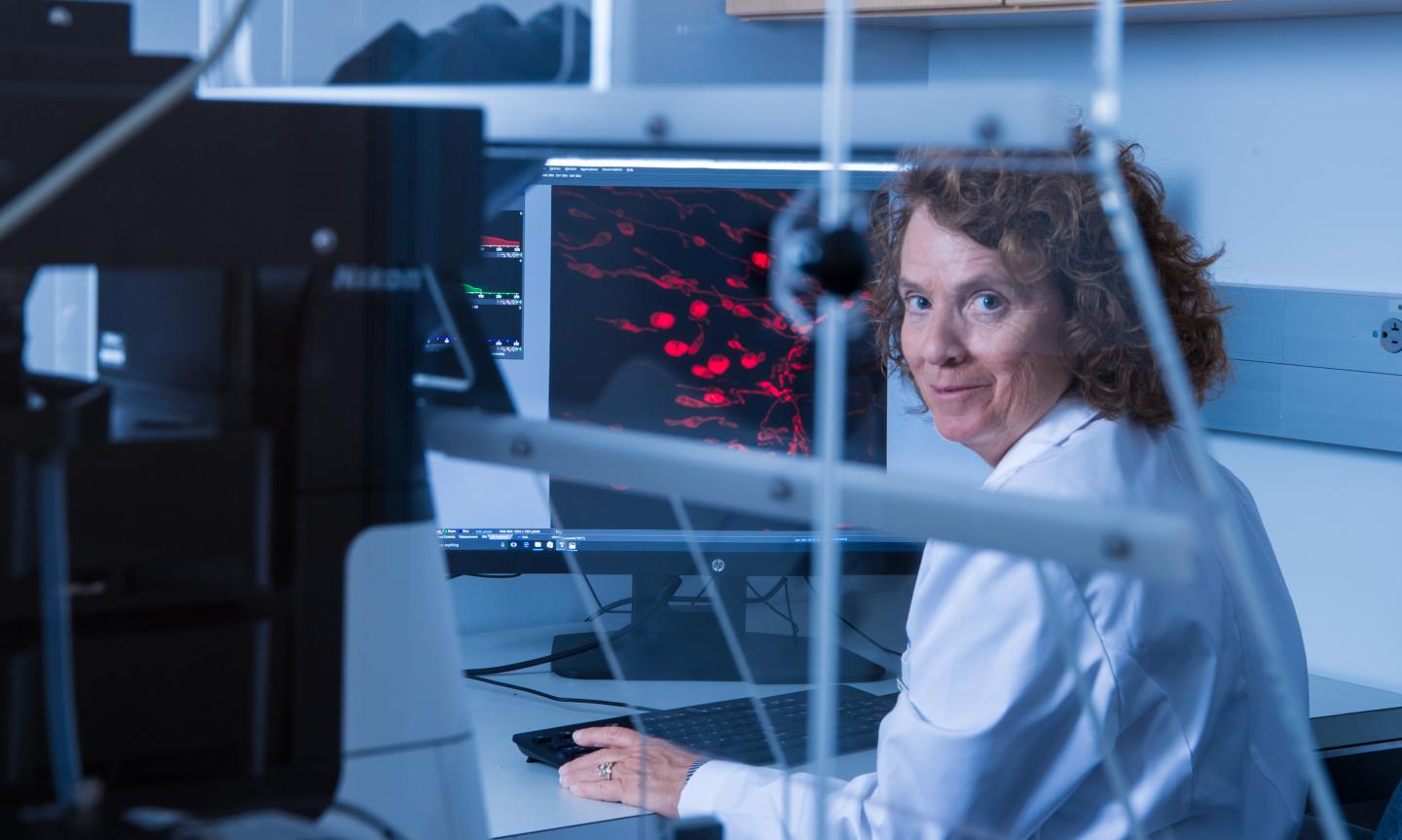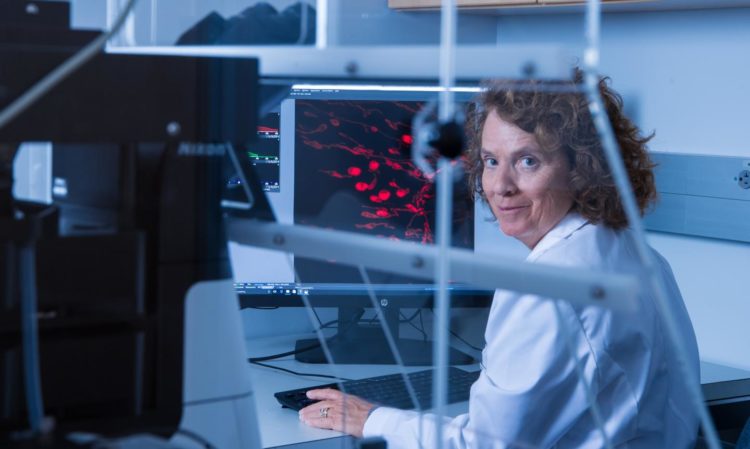
Credit: Alex Dolce, Florida Atlantic University
One study says coffee is good for you, while another study says that it’s not. They’re both right, within context. This dichotomy together with an environment of distrust spurred by anecdotes, fake news, and to a large extent, social media, has created a skeptical and misinformed public. As a result, researchers from Florida Atlantic University’s Schmidt College of Medicine and collaborators say society is rejecting the facts. Now more than ever, medical researchers must help the public understand the rigorous process of science, which has been around for thousands of years. In return, the public has to pay attention, realize that one size doesn’t fit all, and understand that the answers are not just black or white. Lives are depending on it.
In an article published in the American Journal of Medicine, the researchers highlight opportunities for academic institutions to achieve and maintain research integrity, which encompasses accountability for all scientific and financial issues, including human subjects’ and animal protections, investigator accountability, grant submission, design, conduct, analyses, and interpretation of findings, oversight of colleagues and students, environmental health and safety, among others. Research integrity focuses on the many positive attributes that should be sought and maintained by academic institutions as well as their faculty, staff, and trainees. This includes transparency, rigor, and reproducibility.
The best way for medical researchers to meet this challenge is by continuing to ensure integrity, rigor, reproducibility and replication of their science and to earn the public’s trust by being morally responsible and completely free of any influences. Medical researchers have a passion for truth and discovery, therefore, integrity and trust are essential attributes.
“The reason that the public has lost trust and confidence in science is multifaceted and complicated,” said Janet Robishaw, Ph.D., senior author, senior associate dean for research, and chair of the Department of Biomedical Science in FAU’s Schmidt College of Medicine, and a member of the FAU Brain Institute (I-BRAIN), one of the University’s four research pillars. “One of the main reasons is anecdotal stories, which can be very powerful, and are being given too much weight. There’s so much news coming out from so many sources including social media. That’s why it’s imperative for the public to discern an anecdote from scientific results in a peer-reviewed journal. This is how the premise that vaccinations cause autism evolved along with fabricated results that pushed the anti-vaccination movement.”
Robishaw and corresponding author Charles H. Hennekens, M.D., Dr.PH, first Sir Richard Doll Professor and senior academic advisor in FAU’s Schmidt College of Medicine, stress that research integrity starts with investigators who share the guiding principles of honesty, openness, and accountability and who provide scientific and ethical mentorship to their trainees. As researchers compete for increasingly limited resources and face growing challenges with evolving technologies, broad consensus is required across the research enterprise, including funding agencies, medical journals as well as all academic institutions, to address these increasingly major clinical, ethical and legal challenges.
“Our common goal should be to return public trust in our research enterprise, which has done so much good for so many,” said Robishaw. “The more we can do as scientists to promote our guiding principles of rigor, transparency, honesty and reproducibility and to provide the best evidence possible and get people to understand them, the greater the likelihood that they will listen to the message and follow it.”
Among the opportunities the authors provide for enhancing research integrity include identifying the best benchmarking practices, establishing a research compliance infrastructure and implementing a quality assurance plan. These priorities should include assessing the research climate, developing policies and responsibilities for ethics investigations, and providing a process for resolution of formal disputes. In addition, establishing lists of independent experts to conduct periodic reviews of institutional procedures could be helpful. Reinforcing existing regulatory policies that include emails regarding grant routing and regulatory policies, and providing both formal and informal training to faculty, staff, and trainees are other suggestions the authors provide.
“We should not allow research misconduct committed by a very small minority of researchers to detract from the growing focus on efforts to improve the overall quality of the research process carried out by the vast majority,” said Hennekens. “I continue to believe that the overwhelming majority of researchers strive for and achieve scientific excellence and research integrity.”
In conclusion, the authors, which include David L. DeMets, Ph.D., professor emeritus, University of Wisconsin School of Medicine and Public Health; Sarah K. Wood, M.D., senior associate dean for medical education, and Phillip Boiselle, M.D., dean, both in FAU’s Schmidt College of Medicine, emphasize that research integrity requires synchronicity and collaboration between as well as within all academic institutions.
“If we fail to maintain research integrity we will lose public trust and it will lead to avoidable consequences of substantial penalties, financial and otherwise, adverse publicity and reputational damage,” said Robishaw. “Scientists must strive to self-regulate and earn public trust to advance health.”
###
About the Charles E. Schmidt College of Medicine:
FAU’s Charles E. Schmidt College of Medicine is one of approximately 152 accredited medical schools in the U.S. The college was launched in 2010, when the Florida Board of Governors made a landmark decision authorizing FAU to award the M.D. degree. After receiving approval from the Florida legislature and the governor, it became the 134th allopathic medical school in North America. With more than 70 full and part-time faculty and more than 1,300 affiliate faculty, the college matriculates 64 medical students each year and has been nationally recognized for its innovative curriculum. To further FAU’s commitment to increase much needed medical residency positions in Palm Beach County and to ensure that the region will continue to have an adequate and well-trained physician workforce, the FAU Charles E. Schmidt College of Medicine Consortium for Graduate Medical Education (GME) was formed in fall 2011 with five leading hospitals in Palm Beach County. The Consortium currently has five Accreditation Council for Graduate Medical Education (ACGME) accredited residencies including internal medicine, surgery, emergency medicine, psychiatry, and neurology.
About Florida Atlantic University:
Florida Atlantic University, established in 1961, officially opened its doors in 1964 as the fifth public university in Florida. Today, the University, with an annual economic impact of $6.3 billion, serves more than 30,000 undergraduate and graduate students at sites throughout its six-county service region in southeast Florida. FAU’s world-class teaching and research faculty serves students through 10 colleges: the Dorothy F. Schmidt College of Arts and Letters, the College of Business, the College for Design and Social Inquiry, the College of Education, the College of Engineering and Computer Science, the Graduate College, the Harriet L. Wilkes Honors College, the Charles E. Schmidt College of Medicine, the Christine E. Lynn College of Nursing and the Charles E. Schmidt College of Science. FAU is ranked as a High Research Activity institution by the Carnegie Foundation for the Advancement of Teaching. The University is placing special focus on the rapid development of critical areas that form the basis of its strategic plan: Healthy aging, biotech, coastal and marine issues, neuroscience, regenerative medicine, informatics, lifespan and the environment. These areas provide opportunities for faculty and students to build upon FAU’s existing strengths in research and scholarship. For more information, visit fau.edu.
Media Contact
Gisele Galoustian
[email protected]
561-297-2676





